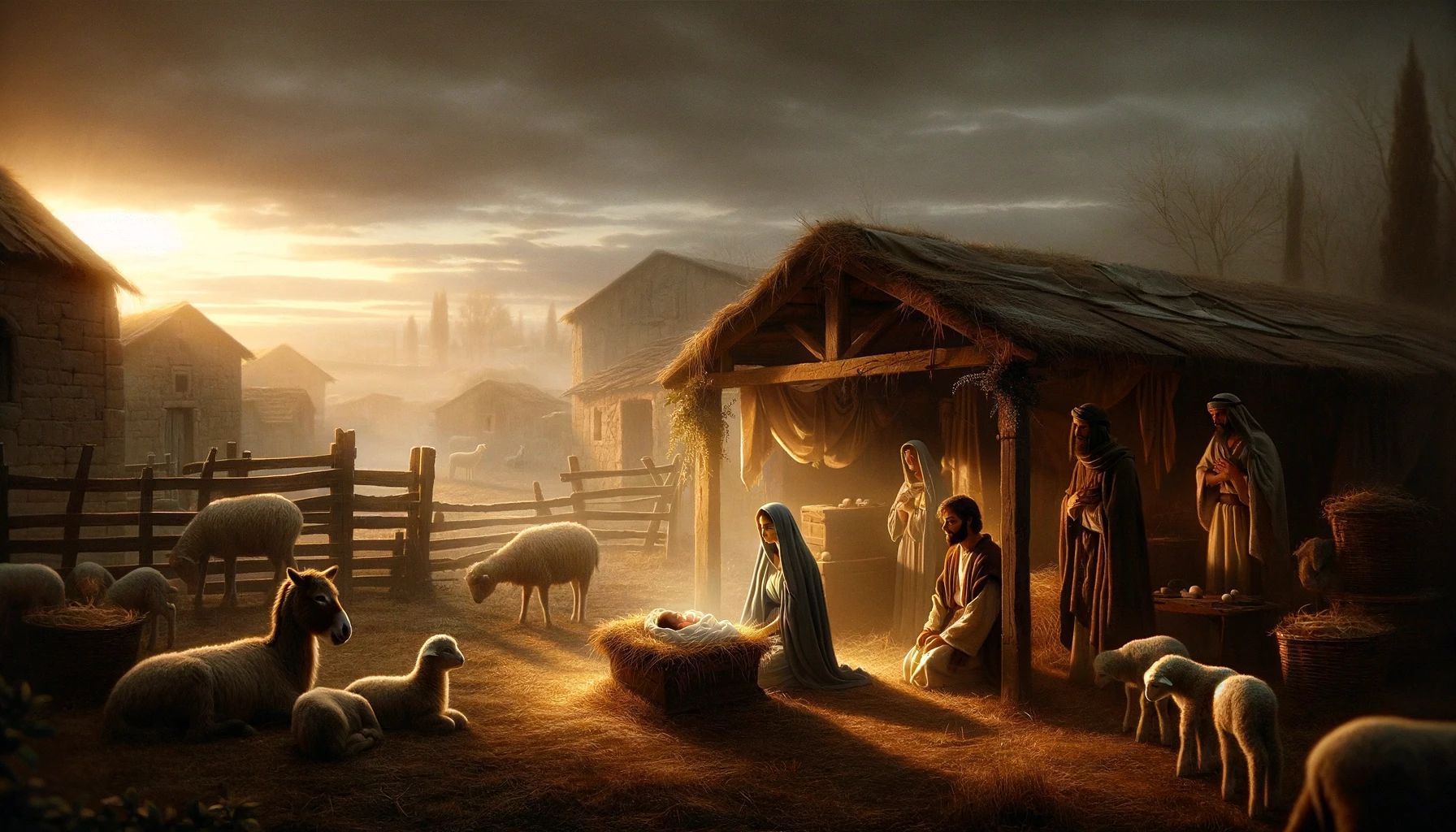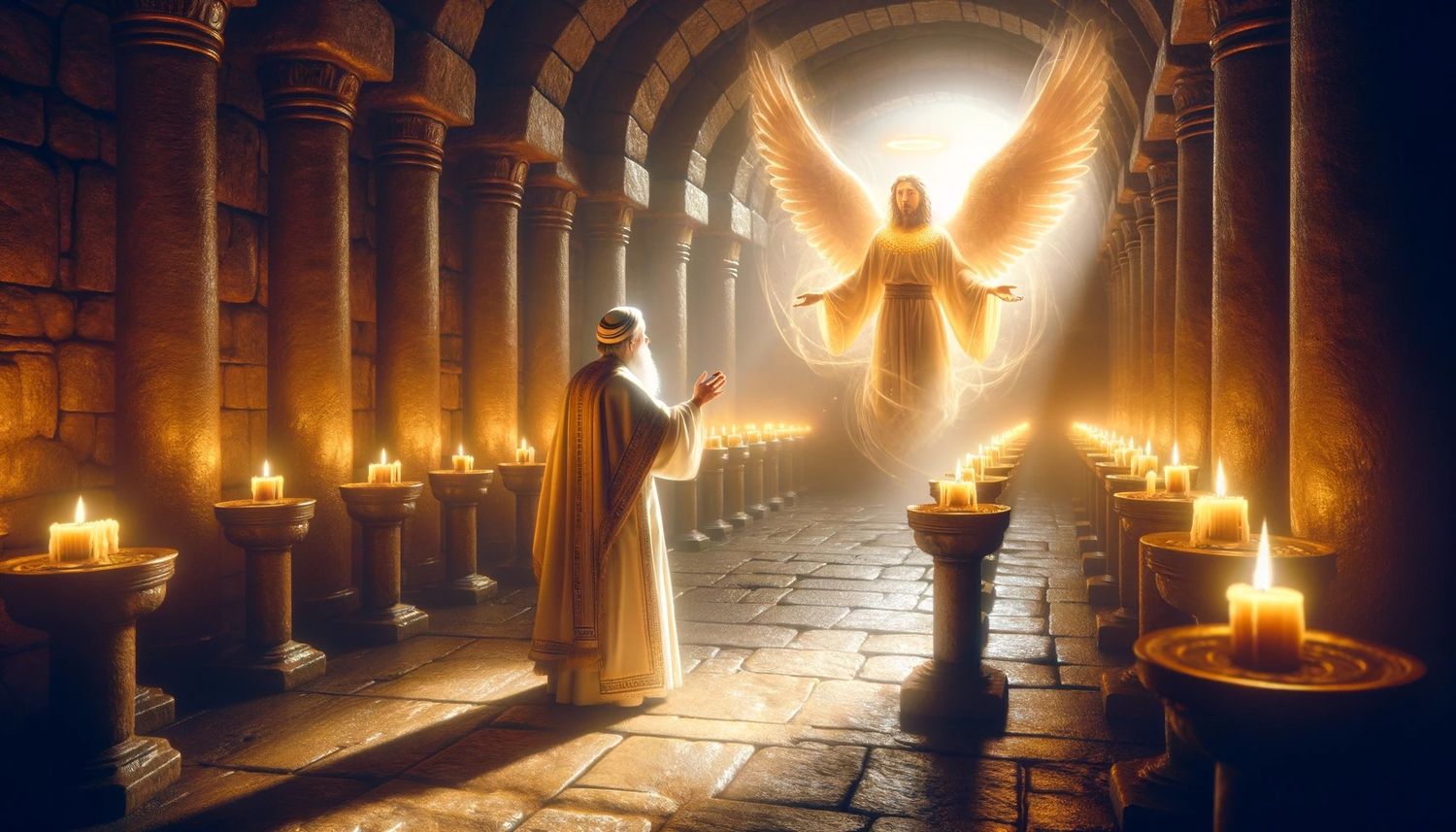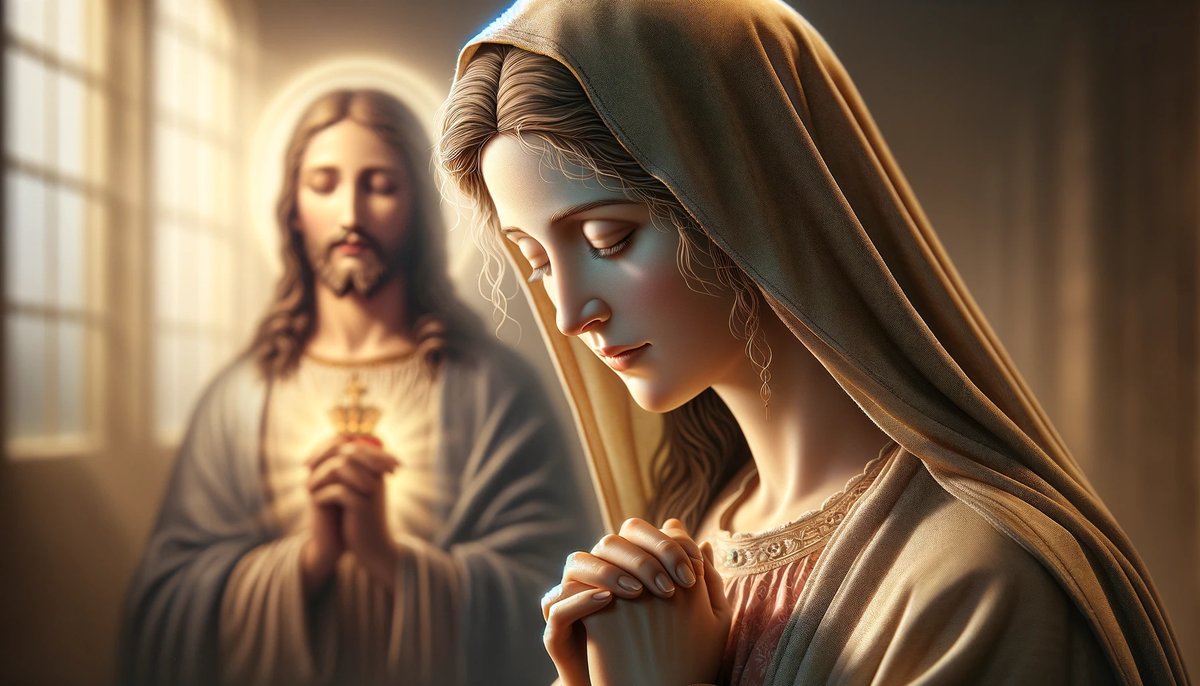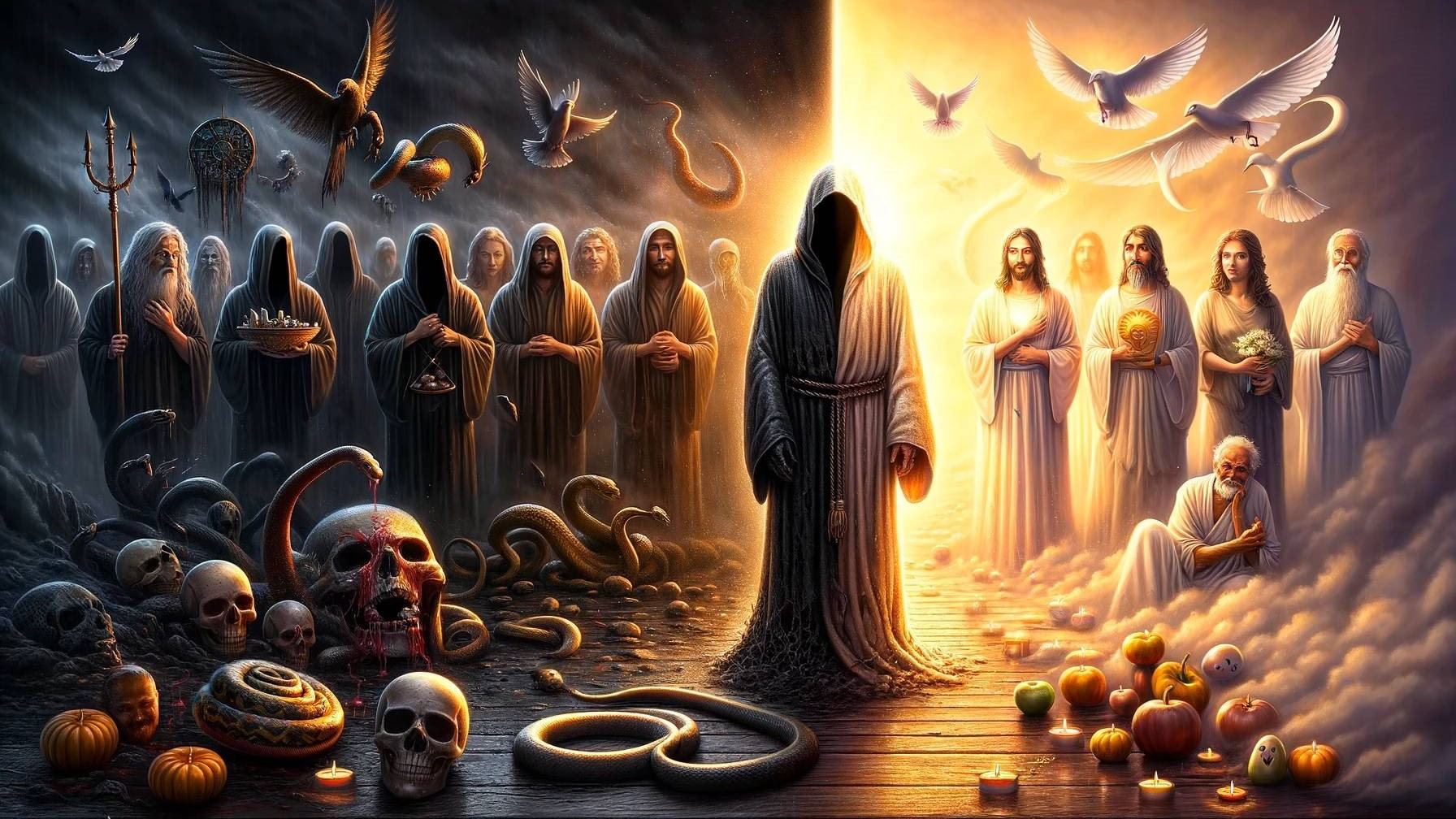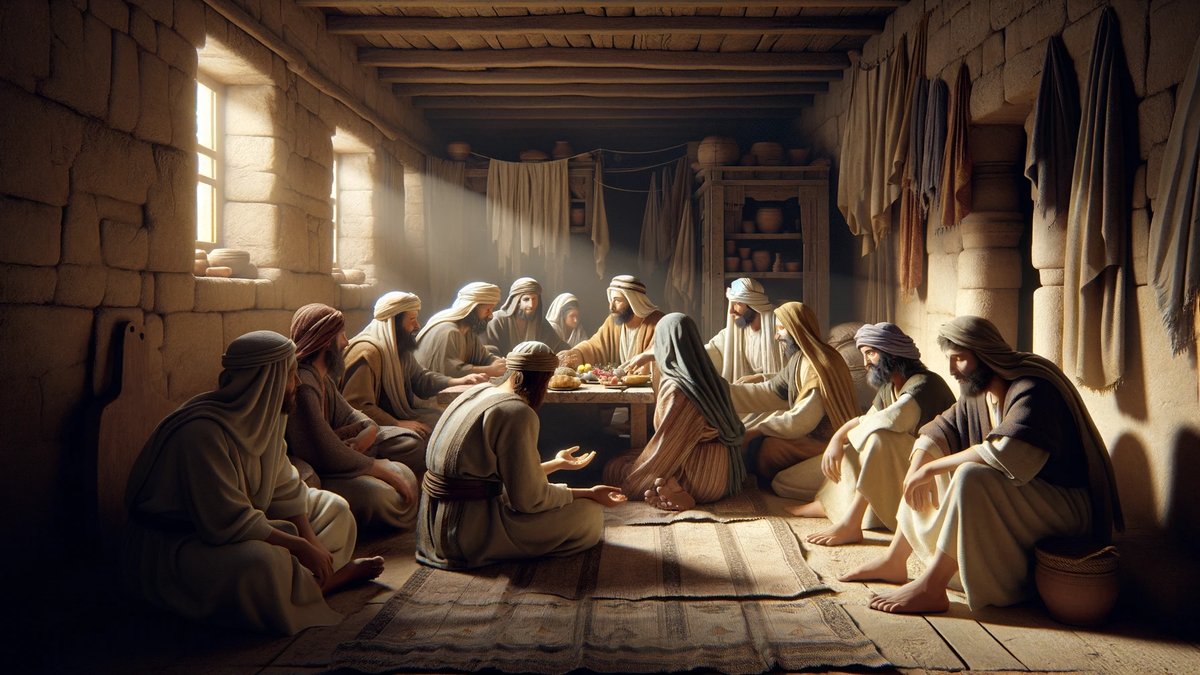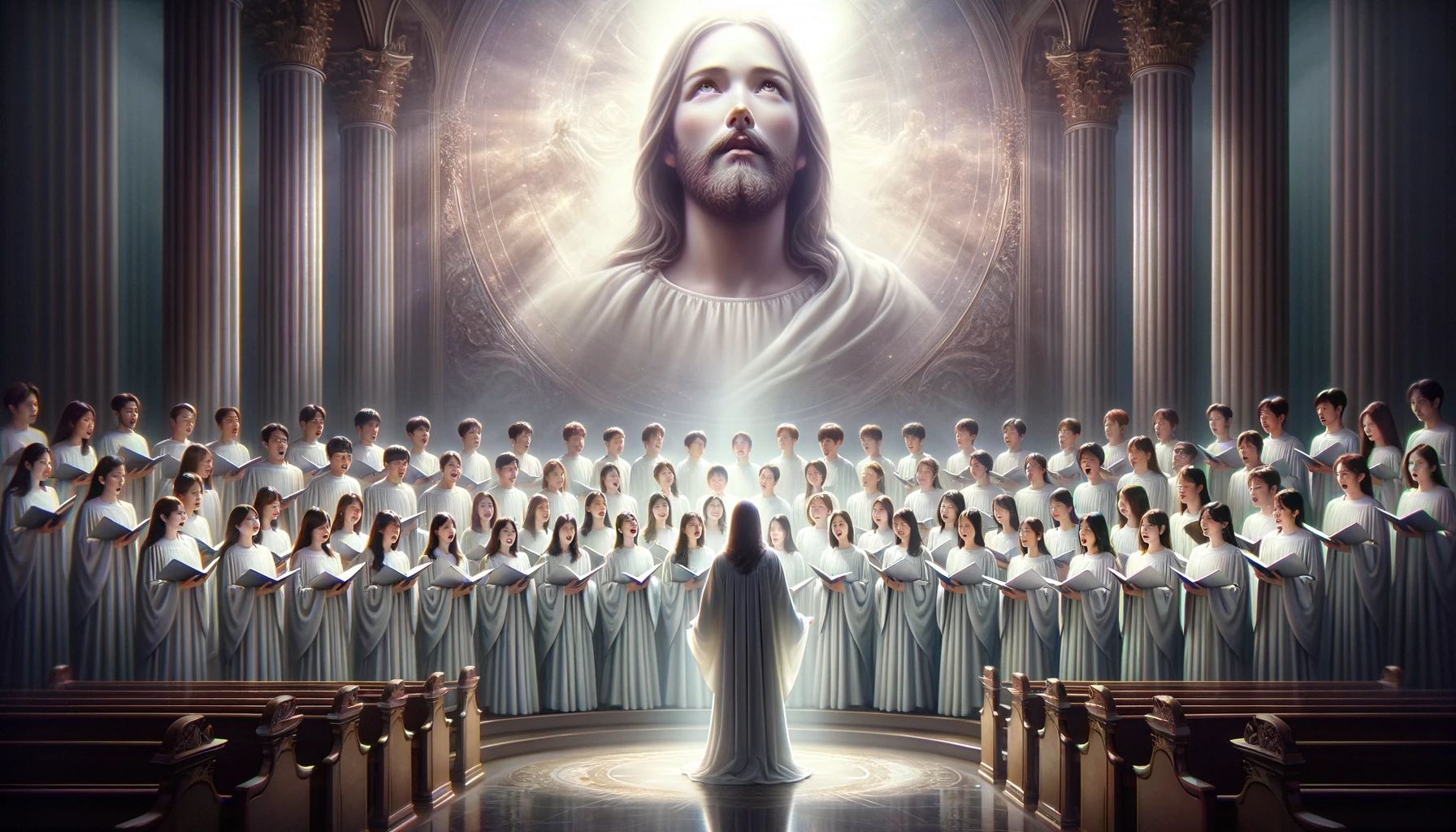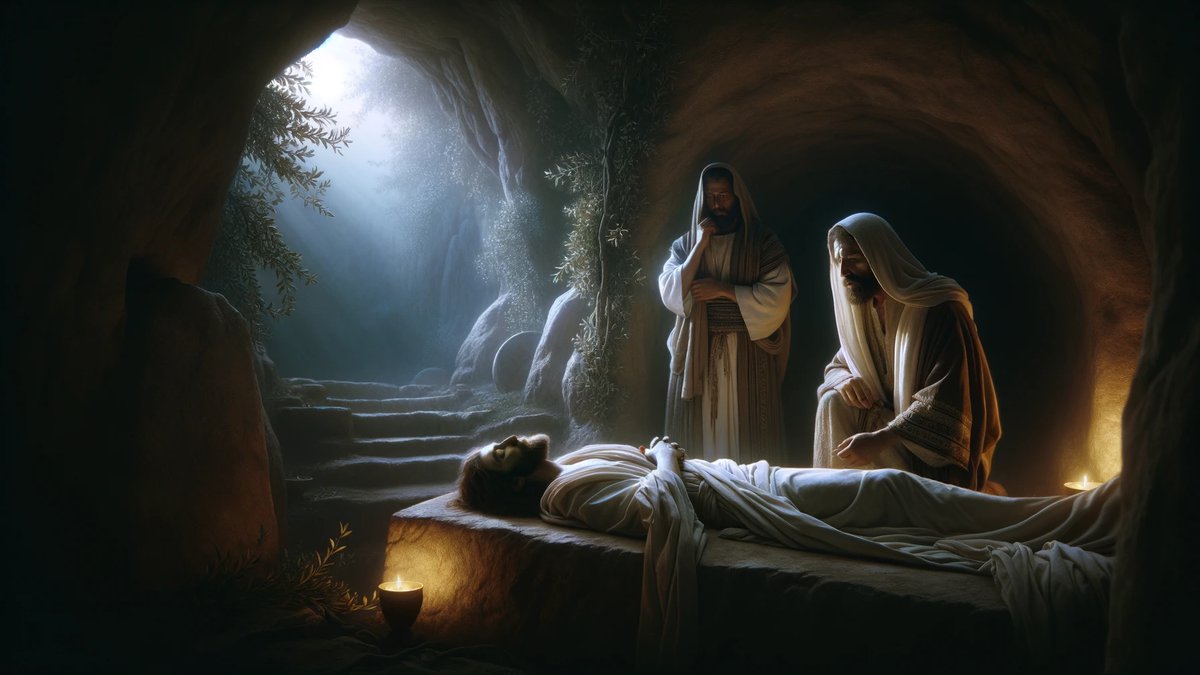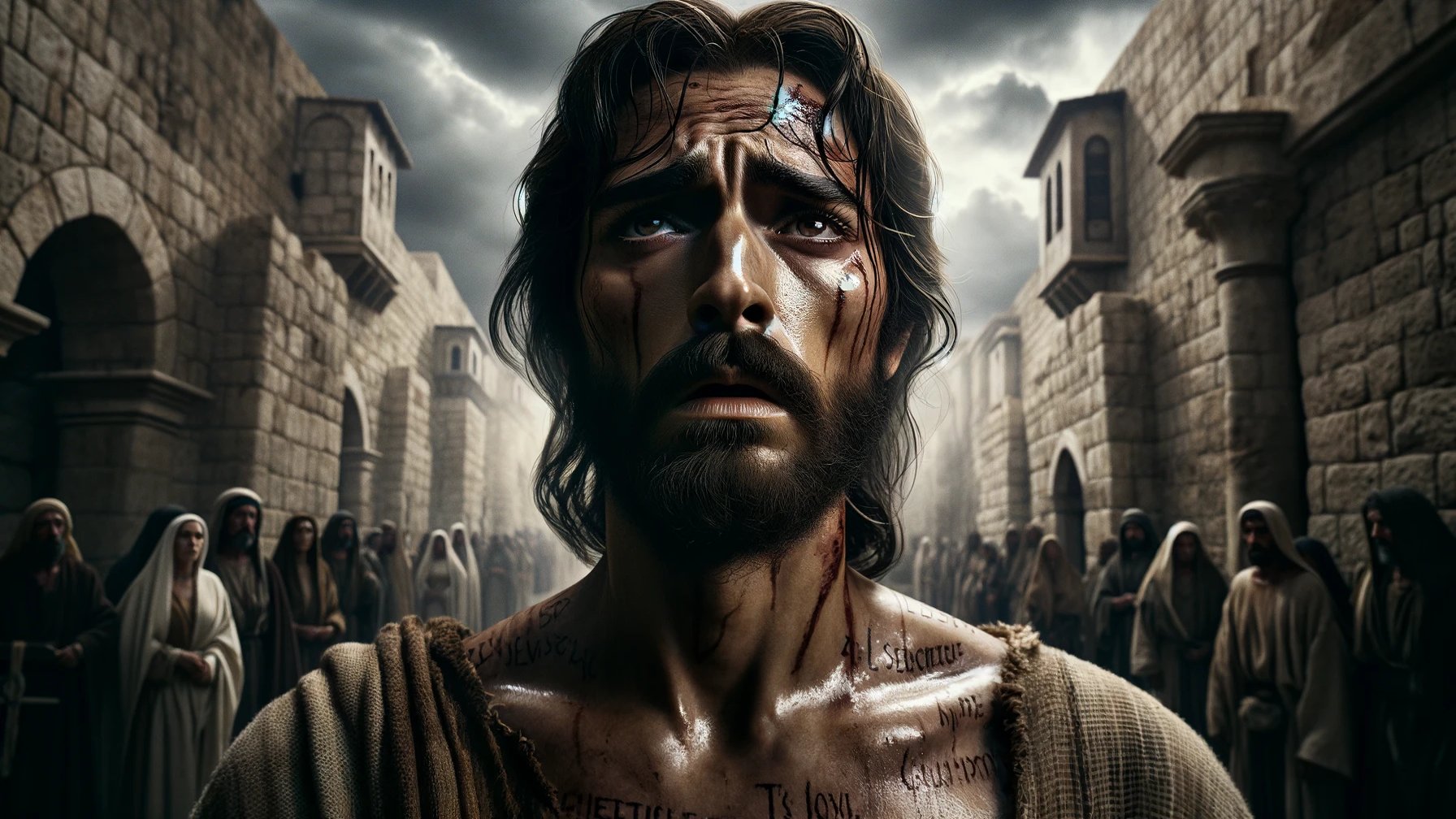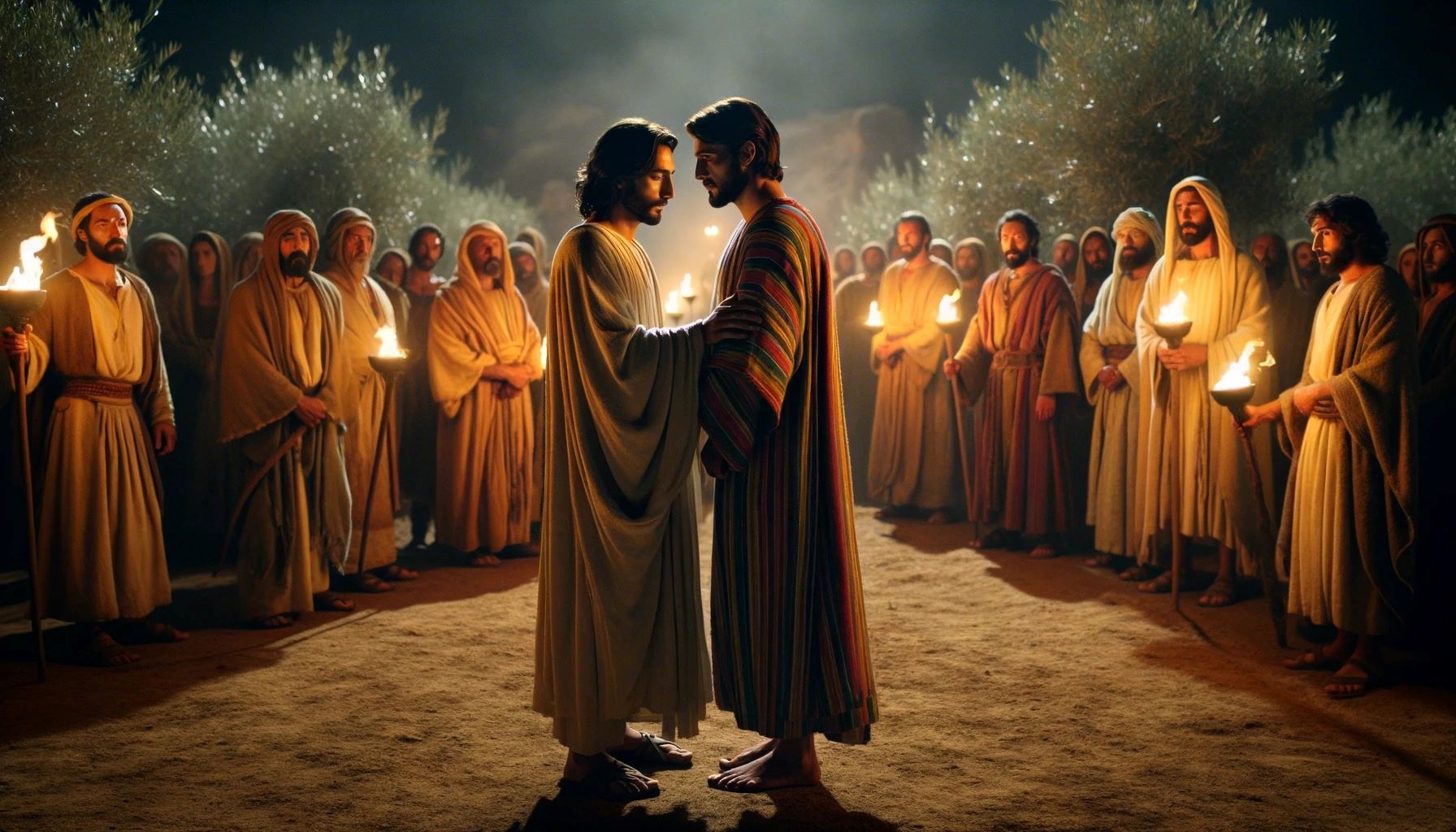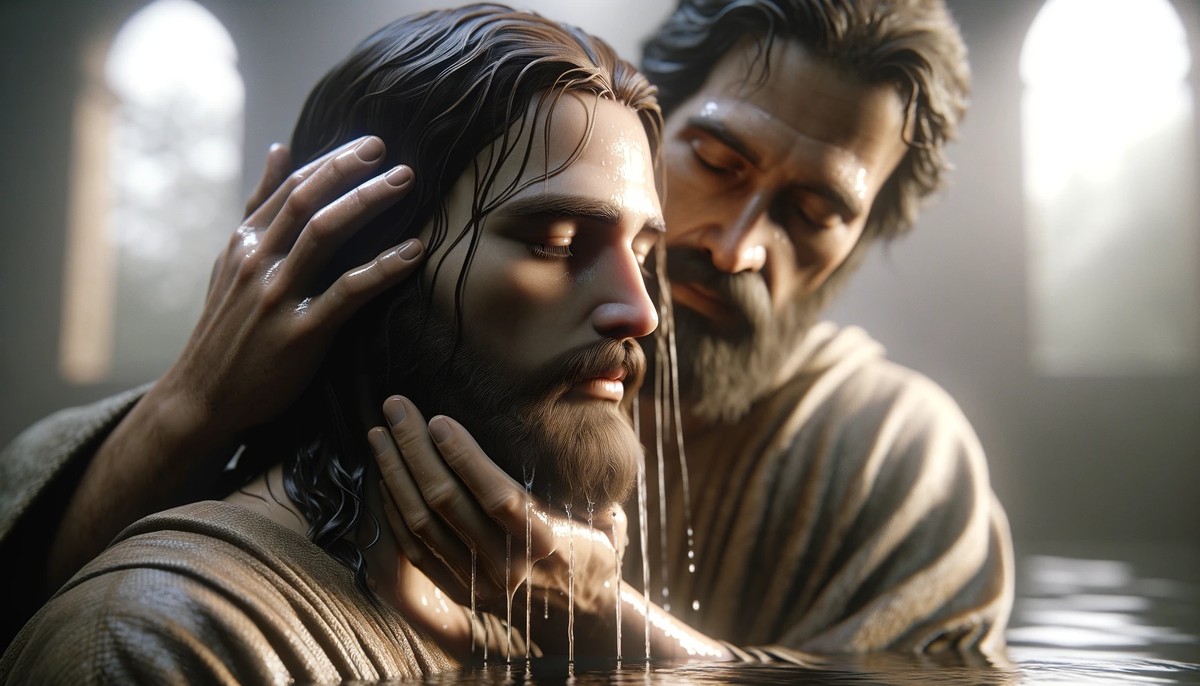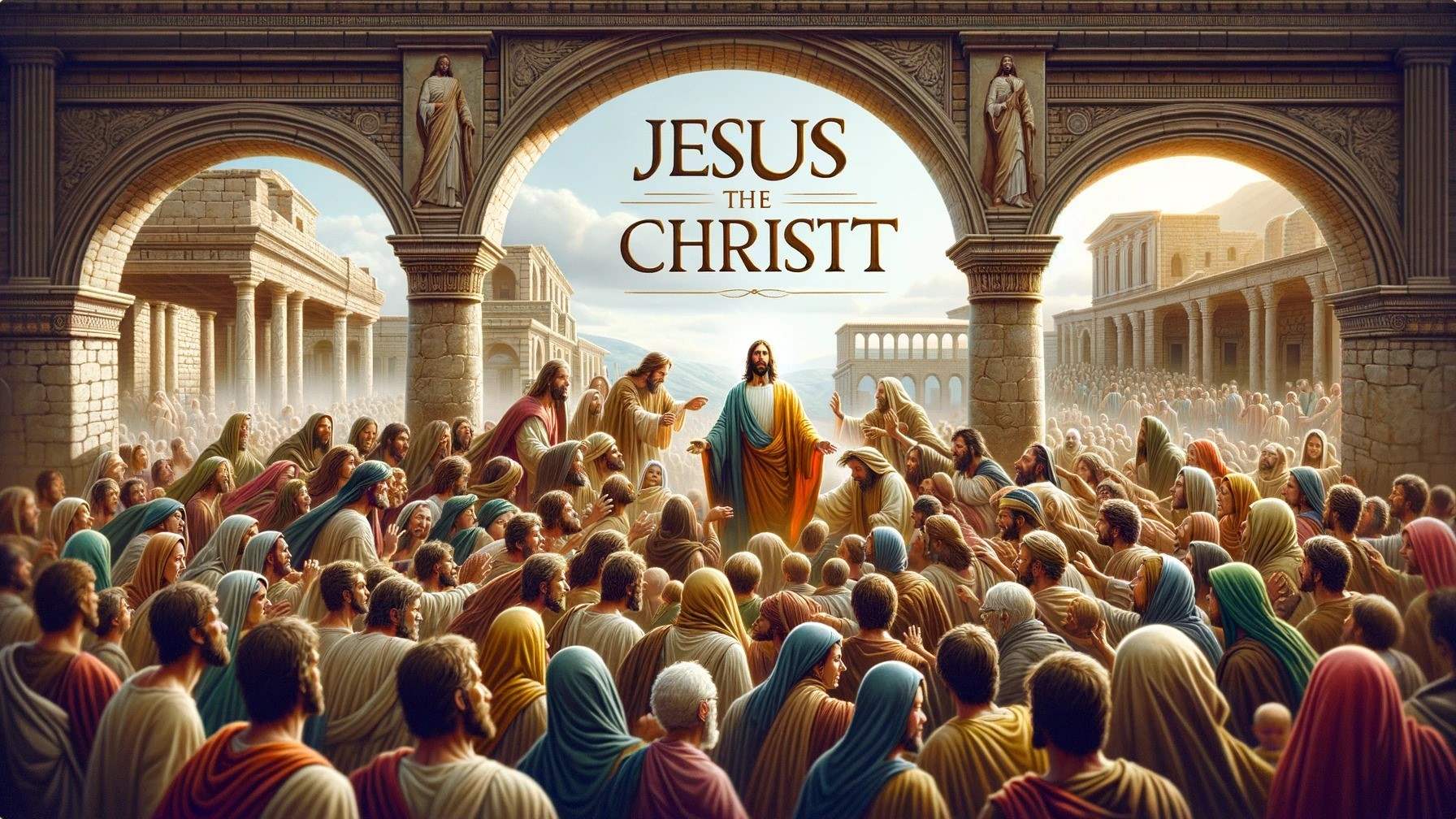Home>Christian Videos>Bible Stories>Prophets Who Prophesied About The Birth Of Jesus Christ
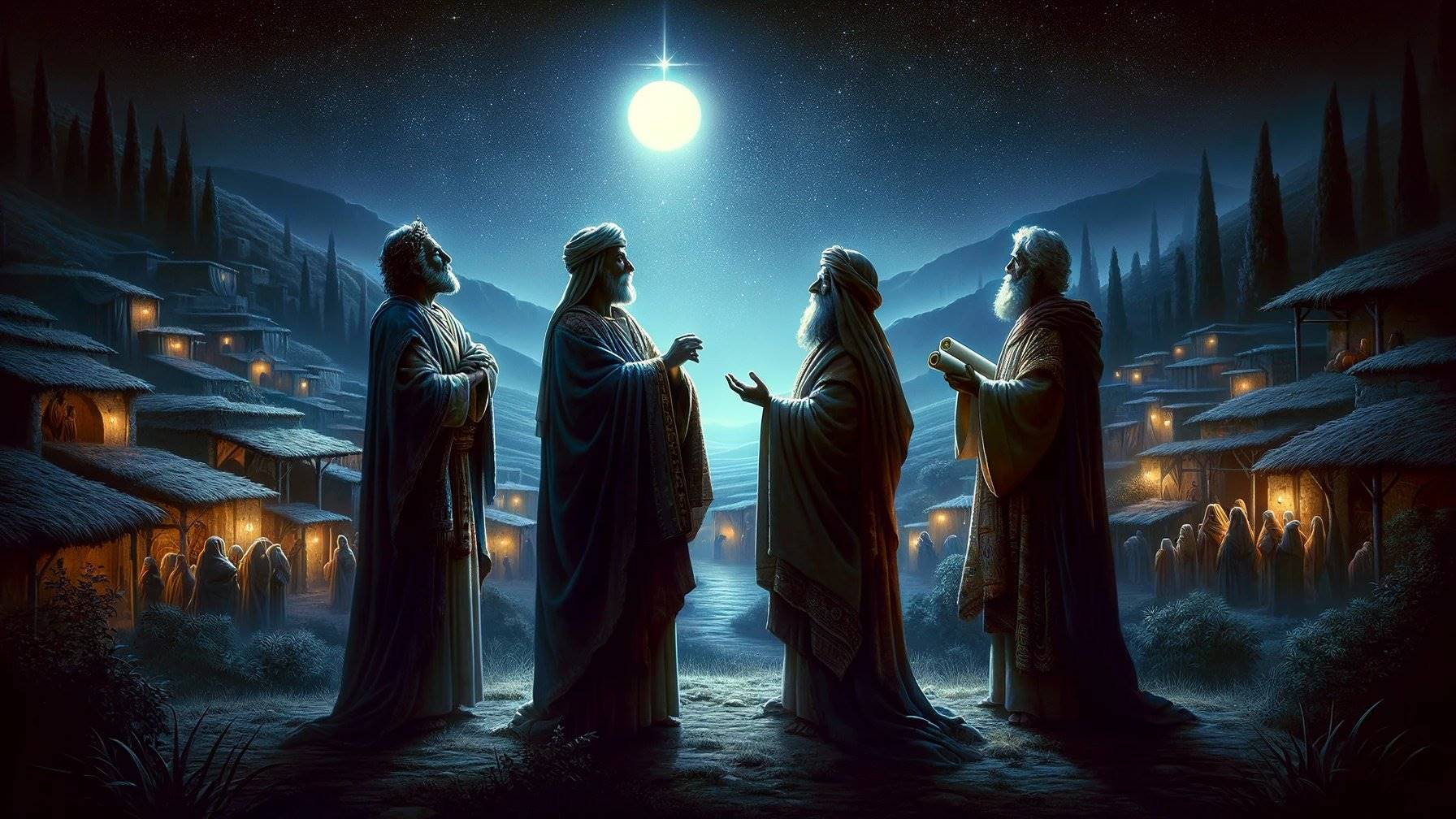

Bible Stories
Prophets Who Prophesied About The Birth Of Jesus Christ
Published: March 3, 2024
Ericka Andersen, an editor at Christian.net, expertly merges digital strategy with content creation, focusing on faith and societal issues. Her communication skills enhance the platform's engaging narratives, fostering meaningful dialogue on belief's impact on society.
Explore the fascinating Bible stories of prophets who foretold the birth of Jesus Christ. Discover the prophecies and their significance in the Christian faith.
(Many of the links in this article redirect to a specific reviewed product. Your purchase of these products through affiliate links helps to generate commission for Christian.net, at no extra cost. Learn more)
Table of Contents
Introduction
The birth of Jesus Christ is a pivotal event in Christianity, and it is foretold in the Old Testament by several prophets. These prophecies serve as a testament to the divine plan and the fulfillment of God's promises. The anticipation and fulfillment of these prophecies are foundational to the Christian faith, demonstrating the continuity and coherence of God's redemptive plan throughout history. In this article, we will explore the prophecies of the birth of Jesus Christ as foretold by the prophets of the Old Testament, shedding light on the significance of these prophetic messages and their fulfillment in the New Testament.
Read more: Who Prophesied The Coming Of Jesus Christ
Old Testament Prophecies of the Messiah
The Old Testament is replete with prophecies about the coming of the Messiah, who would bring salvation and redemption to humanity. These prophecies, spanning centuries before the birth of Jesus Christ, serve as a testament to the divine foresight and plan of God. They provide a coherent narrative of God's redemptive purpose and offer hope to the people of Israel and the world at large. The fulfillment of these prophecies in the person of Jesus Christ underscores the divine orchestration of history and the continuity of God's promises throughout generations.
The prophecies of the Messiah in the Old Testament are characterized by their specificity and clarity, pointing to the unique identity and mission of the coming Savior. These prophecies encompass various aspects of the Messiah's nature, purpose, and the manner of His arrival, providing a comprehensive framework for identifying the fulfillment of these prophecies in the person of Jesus Christ. The Old Testament prophecies not only anticipate the birth of the Messiah but also delineate His divine attributes, redemptive work, and the establishment of His kingdom, offering a panoramic view of God's redemptive plan for humanity.
The Old Testament prophecies of the Messiah serve as a beacon of hope and assurance for the people of Israel and all believers, affirming the faithfulness of God in fulfilling His promises. These prophecies transcend the boundaries of time and culture, resonating with the universal longing for a savior and the restoration of humanity's relationship with God. The fulfillment of these prophecies in the birth of Jesus Christ brings to fruition the anticipation and yearning of generations, validating the divine authorship of Scripture and the redemptive significance of Jesus' birth in the grand narrative of God's plan for humanity's salvation.
The Prophecy of Isaiah
The prophecy of Isaiah stands as one of the most profound and detailed predictions of the birth of Jesus Christ in the Old Testament. In Isaiah 7:14, the prophet declares, "Therefore the Lord himself will give you a sign: The virgin will conceive and give birth to a son, and will call him Immanuel." This prophecy not only anticipates the miraculous conception and birth of Jesus through a virgin but also foreshadows His divine nature as Immanuel, which means "God with us." The specificity of this prophecy, particularly in foretelling the virgin birth of Jesus, underscores the supernatural and redemptive significance of His arrival.
Isaiah 9:6 further expounds on the identity and mission of the coming Messiah, proclaiming, "For to us a child is born, to us a son is given, and the government will be on his shoulders. And he will be called Wonderful Counselor, Mighty God, Everlasting Father, Prince of Peace." This prophecy delineates the multifaceted nature of the Messiah, portraying Him as a divine figure with the authority to establish an everlasting kingdom of peace and righteousness. The titles attributed to the Messiah in this prophecy underscore His divine attributes and the redemptive purpose of His birth, offering a comprehensive portrayal of His identity and mission.
Isaiah 53 provides a poignant depiction of the suffering and atoning work of the coming Messiah, portraying Him as the sacrificial lamb who would bear the sins of humanity. This prophecy foretells the redemptive significance of Jesus' birth, anticipating His ultimate mission to reconcile humanity to God through His sacrificial death and resurrection. The vivid imagery and profound theological depth of this prophecy offer a compelling portrayal of the Messiah's redemptive work, emphasizing the transformative impact of His birth on the destiny of humanity.
The prophecy of Isaiah serves as a testament to the divine foresight and sovereignty of God, providing a rich tapestry of prophetic messages that find their fulfillment in the birth, life, and mission of Jesus Christ. The specificity and depth of these prophecies underscore the divine orchestration of history and the redemptive significance of Jesus' birth, affirming the continuity and coherence of God's redemptive plan throughout the ages.
The Prophecy of Micah
The prophecy of Micah offers a profound insight into the birth of Jesus Christ, foretelling not only the birthplace of the Messiah but also His eternal nature and redemptive mission. In Micah 5:2, the prophet declares, "But you, O Bethlehem Ephrathah, who are too little to be among the clans of Judah, from you shall come forth for me one who is to be ruler in Israel, whose coming forth is from of old, from ancient days." This prophecy not only specifies the birthplace of the Messiah as Bethlehem but also emphasizes His eternal existence, tracing His origins to ancient times. The significance of Bethlehem as the birthplace of the Messiah is underscored in the New Testament, as Jesus is born in Bethlehem, fulfilling this prophetic declaration.
The prophecy of Micah illuminates the divine orchestration of the Messiah's birth, highlighting the fulfillment of ancient prophecies in the person of Jesus Christ. The specificity of this prophecy regarding the birthplace of the Messiah serves as a compelling testament to the divine foresight and sovereignty of God, affirming the fulfillment of His promises in the fullness of time. The prophetic message of Micah resonates with the overarching narrative of God's redemptive plan, emphasizing the continuity and coherence of His purpose throughout history.
Micah's prophecy not only anticipates the birth of the Messiah but also portrays His role as a shepherd and a ruler, emphasizing His authority and care over His people. The imagery of the shepherd reflects the Messiah's role in guiding and protecting His followers, while the depiction of His rulership underscores His divine authority and sovereignty. This multifaceted portrayal of the Messiah in Micah's prophecy encapsulates His redemptive mission and the establishment of His kingdom, offering a comprehensive vision of His identity and purpose.
The prophecy of Micah serves as a testament to the divine foresight and sovereignty of God, providing a rich tapestry of prophetic messages that find their fulfillment in the birth, life, and mission of Jesus Christ. The specificity and depth of these prophecies underscore the divine orchestration of history and the redemptive significance of Jesus' birth, affirming the continuity and coherence of God's redemptive plan throughout the ages.
The Prophecy of Jeremiah
The prophecy of Jeremiah provides profound insights into the birth of Jesus Christ, offering a glimpse into the redemptive mission and divine nature of the Messiah. In Jeremiah 23:5-6, the prophet declares, "Behold, the days are coming, declares the Lord, when I will raise up for David a righteous Branch, and he shall reign as king and deal wisely, and shall execute justice and righteousness in the land. In his days Judah will be saved, and Israel will dwell securely. And this is the name by which he will be called: 'The Lord is our righteousness.'" This prophecy not only anticipates the lineage of the Messiah from the house of David but also emphasizes His role as a righteous and just ruler. The title attributed to the Messiah as "The Lord is our righteousness" underscores His divine nature and redemptive mission, portraying Him as the source of salvation and security for His people.
Jeremiah's prophecy illuminates the redemptive significance of the Messiah's birth, emphasizing His role as the fulfillment of God's covenant with David and the embodiment of divine righteousness. The portrayal of the Messiah as a righteous Branch from the lineage of David underscores His royal lineage and authority, affirming His rightful position as the promised King of Israel. The prophetic message of Jeremiah resonates with the overarching narrative of God's faithfulness and redemptive plan, highlighting the continuity and coherence of His promises throughout generations.
The prophecy of Jeremiah not only anticipates the birth of the Messiah but also delineates His role as the source of salvation and security for His people. The imagery of a righteous and just ruler underscores the Messiah's divine attributes and His mission to establish justice and righteousness in the land. This multifaceted portrayal of the Messiah in Jeremiah's prophecy encapsulates His redemptive mission and the fulfillment of God's covenant with His people, offering a comprehensive vision of His identity and purpose.
Jeremiah's prophecy serves as a testament to the divine foresight and sovereignty of God, providing a rich tapestry of prophetic messages that find their fulfillment in the birth, life, and mission of Jesus Christ. The specificity and depth of these prophecies underscore the divine orchestration of history and the redemptive significance of Jesus' birth, affirming the continuity and coherence of God's redemptive plan throughout the ages.
Read more: Who Prophesied About John The Baptist
The Prophecy of Zechariah
The prophecy of Zechariah provides profound insights into the birth of Jesus Christ, offering a glimpse into the redemptive mission and divine nature of the Messiah. In Zechariah 9:9, the prophet declares, "Rejoice greatly, O daughter of Zion! Shout aloud, O daughter of Jerusalem! Behold, your king is coming to you; righteous and having salvation is he, humble and mounted on a donkey, on a colt, the foal of a donkey." This prophecy not only anticipates the arrival of the Messiah as a righteous and humble king but also foreshadows the manner of His entry into Jerusalem. The imagery of the Messiah riding on a donkey signifies His role as a peaceful and compassionate ruler, in contrast to the typical depiction of conquering kings on warhorses. This portrayal underscores the Messiah's mission to bring salvation and righteousness to His people, emphasizing His humility and compassion as attributes of His divine nature.
Zechariah's prophecy illuminates the redemptive significance of the Messiah's birth, emphasizing His role as the fulfillment of God's promise of a righteous and compassionate king. The portrayal of the Messiah as a humble and righteous ruler underscores His divine attributes and His mission to bring salvation to His people. The prophetic message of Zechariah resonates with the overarching narrative of God's faithfulness and redemptive plan, highlighting the continuity and coherence of His promises throughout generations.
The prophecy of Zechariah not only anticipates the birth of the Messiah but also delineates His role as the source of salvation and peace for His people. The imagery of a righteous and humble king riding on a donkey symbolizes the Messiah's mission to establish a kingdom of peace and righteousness, reflecting His divine attributes and redemptive purpose. This multifaceted portrayal of the Messiah in Zechariah's prophecy encapsulates His redemptive mission and the establishment of His peaceful reign, offering a comprehensive vision of His identity and purpose.
Zechariah's prophecy serves as a testament to the divine foresight and sovereignty of God, providing a rich tapestry of prophetic messages that find their fulfillment in the birth, life, and mission of Jesus Christ. The specificity and depth of these prophecies underscore the divine orchestration of history and the redemptive significance of Jesus' birth, affirming the continuity and coherence of God's redemptive plan throughout the ages.
Conclusion
The prophecies of the birth of Jesus Christ in the Old Testament stand as a testament to the divine foresight and sovereignty of God. The specificity, clarity, and depth of these prophecies underscore the supernatural and redemptive significance of Jesus' birth, affirming the continuity and coherence of God's redemptive plan throughout history. The fulfillment of these prophecies in the person of Jesus Christ not only validates the divine authorship of Scripture but also offers a compelling testimony to the redemptive mission and divine nature of the Messiah. The anticipation and fulfillment of these prophecies serve as a cornerstone of the Christian faith, providing a coherent narrative of God's redemptive purpose and offering hope and assurance to believers. The prophecies of the birth of Jesus Christ in the Old Testament not only illuminate the identity and mission of the Messiah but also resonate with the universal longing for a savior and the restoration of humanity's relationship with God. As such, these prophecies continue to inspire faith, hope, and awe at the divine orchestration of history and the fulfillment of God's promises in the birth of Jesus Christ.

